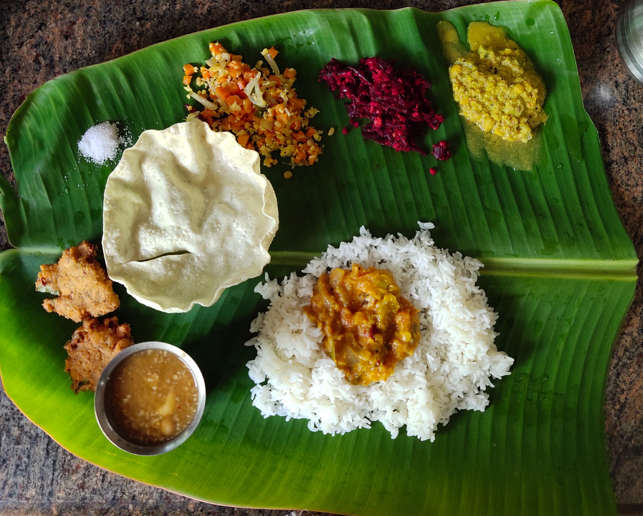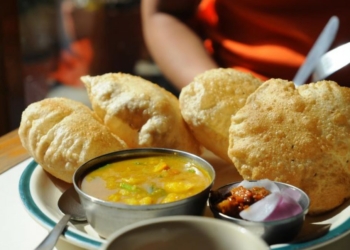Do you love eating out or ordering food from restaurants? Do you think that outside food is more convenient, tasty, and satisfying than home made food? If you answered yes to any of these questions, then you might want to reconsider your food choices. In this blog post, I will explain why eating home made food is important than outside food for your health, budget, and environment.
Eating home made food is important than outside food because it gives you more control over the quality, quantity, and variety of your food. You can choose the ingredients, cooking methods, and portions that suit your needs and preferences. You can also avoid the additives, preservatives, and unhealthy fats that are often found in outside food. Eating home made food can help you improve your nutrition, save money, and reduce waste.
How to Cook Healthy Meals at Home
Cooking healthy meals at home does not have to be complicated or time-consuming. With some basic skills, tools, and ingredients, you can create satisfying dishes that are good for you and your family. Here are some tips on how to cook healthy meals at home:
- Plan ahead. Planning your meals in advance can help you save time, money, and stress. You can use a weekly menu planner or a meal delivery service to decide what to cook and shop for the ingredients. You can also batch cook some dishes and freeze them for later use.
- Stock up on staples. Having some pantry staples on hand can make it easier to whip up a quick and healthy meal. Some of the essentials include whole grains, beans, canned tomatoes, nuts, seeds, spices, herbs, oils, vinegars, and sauces. You can also keep some frozen vegetables, fruits, and proteins in your freezer for convenience.
- Use simple techniques. You don’t need to be a master chef to cook healthy meals at home. Some of the simple techniques that can produce tasty results include roasting, baking, steaming, sautéing, grilling, and stir-frying. These methods can bring out the natural flavors of the ingredients without adding too much fat or calories.
- Add color and variety. One of the easiest ways to make your meals more nutritious and appealing is to add more fruits and vegetables to your plate. Fruits and vegetables are rich in vitamins, minerals, antioxidants, and fiber that can boost your immune system, digestion, and skin health. They also add color, texture, and flavor to your dishes. Try to eat a rainbow of fruits and vegetables every day.
- Experiment with new recipes. Cooking healthy meals at home can also be fun and creative. You can try new recipes from different cuisines or adapt your favorite dishes to make them healthier. For example, you can use whole wheat pasta instead of white pasta, yogurt instead of cream, or turkey instead of beef. You can also use herbs, spices, lemon juice, or vinegar to add flavor without adding salt or sugar.

Benefits of Eating Home Made Food
Eating home made food has many benefits for your physical and mental well-being. Here are some of the main advantages of eating home made food:
- Better nutrition: Home made food is usually more nutritious than outside food because you can use fresh, whole, and natural ingredients. You can also balance your meals with the right amount of protein, carbohydrates, fats, vitamins, minerals, and fiber. Eating home made food can help you prevent or manage various health conditions such as obesity, diabetes, heart disease, and cancer.
- Lower cost: Home made food is usually cheaper than outside food because you can buy ingredients in bulk, use seasonal produce, and plan your meals ahead. You can also save money by cooking in large batches and freezing or refrigerating the leftovers for later use. Eating home made food can help you reduce your food expenses and stick to your budget.
- Less waste: Home made food is usually less wasteful than outside food because you can use up the ingredients that you have, avoid packaging and disposable items, and compost or recycle the scraps. You can also reduce your carbon footprint by choosing local, organic, and plant-based foods. Eating home made food can help you protect the environment and conserve natural resources.
- Boosting your confidence: Cooking your own meals can give you a sense of accomplishment and pride. You can also improve your cooking skills and knowledge by learning new recipes or techniques.
- Supporting your local community: By cooking your own meals, you can support your local farmers, producers, and businesses that provide fresh and quality ingredients. You can also reduce your environmental impact by choosing organic or sustainable products.
Tips for Eating Home Made Food
Eating home made food may seem challenging or time-consuming at first, but it can become easier and more enjoyable with some practice and planning. Here are some tips for eating home made food:
Make a menu: Planning your meals for the week can help you save time, money, and energy. You can use online tools, apps, or cookbooks to find recipes that suit your taste buds and dietary needs. You can also check what ingredients you have on hand and what you need to buy.
Cook in advance: Cooking in advance can help you avoid the temptation of ordering or eating out when you are busy or tired. You can cook large portions of dishes that can be stored or reheated easily such as soups, stews, casseroles, salads, or sandwiches. You can also prepare ingredients such as chopped vegetables, cooked grains, or marinated meats for later use.
Make it fun: Cooking and eating home made food can be fun and rewarding if you involve your family or friends. You can cook together, share recipes, or try new cuisines. You can also make it a special occasion by setting the table, playing music, or lighting candles.
Conclusion
Eating home made food is important than outside food for many reasons. It can help you improve your health, save money, and reduce waste. It can also give you more control over the quality, quantity, and variety of your food. Eating home made food may require some effort and creativity, but it can also be enjoyable and satisfying. If you want to start eating more home made food, you can follow the tips in this blog post and see the difference for yourself. If you found this blog post useful, please share it with your friends and family.
FAQ
Here are some frequently asked questions about eating home made food:
- What are some easy home made dishes that I can make?
Some easy home made dishes that you can make are:- Pasta with tomato sauce and cheese
- Stir-fried rice with vegetables and eggs
- Chicken curry with yogurt and spices
- Vegetable soup with bread
- Omelette with cheese and ham
- How can I make my home made food more tasty?
You can make your home made food more tasty by:- Using fresh herbs and spices
- Adding lemon juice or vinegar for acidity
- Sprinkling salt or sugar for seasoning
- Drizzling oil or butter for richness
- Garnishing with nuts, seeds, or cheese for crunch
- How can I store my home made food safely?
You can store your home made food safely by:- Cooling it down quickly after cooking
- Putting it in airtight containers or bags
- Labeling it with the date and name
- Refrigerating it for up to 4 days or freezing it for up to 3 months
- Reheating it thoroughly before eating










